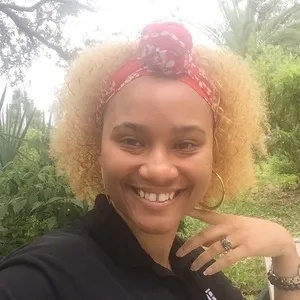Anemia is something I’ve experienced a couple times in my life. The first time was my freshman year of high school. After having a menstrual cycle that lasted on and off for a couple months. I remember being scared because this sort of thing had never happened to me before that moment. I’d have a menstrual flow for a week then it’d come back a couple days later. I finally told my mom what was going on and immediately went to the ER. When the doctor told me I was anemic, I had no clue what that meant. I don’t remember how he explained it to me but I wasn’t confused anymore about why I had a period that lasted for two weeks.
The second time I dealt with anemia was my senior year of college, but this time it was crazier. I was super fatigued and barely had any energy. What was a 15-minute walk to class became a 20-30-minute ordeal. I was literally a zombie from The Walking Dead. I was prescribed birth control and iron supplements to prevent me from becoming anemic. Anemia is an illness that can be scary, but it’s easily treatable.
I spoke to Licensed Dietitian Nutritionist Kelsey Cobler, RD, LDN of KORA Nutrition about anemia.

Spoon: Can you explain what anemia is from a nutritionist’s point of view?
Kelsey Cobler: Anemia is a condition in which your blood has lower than normal number of red blood cells. Anemia can also occur if your red blood cells don’t contain enough hemoglobin. Hemoglobin is an iron-rich protein that helps red blood cells carry oxygen from the lungs to the rest of the body.
Spoon: How can someone figure out if they’re showing signs of anemia?
KC: The most common sign of anemia is fatigue. This is due to your blood’s decreased ability to transport oxygen to the rest of the body. The best way to determine if someone has anemia is by getting blood work done. The first test ordered to diagnose anemia is typically a complete blood count (CBC). This test shows the levels of hemoglobin, hematocrit, red blood cells, white blood cells, platelets, and MCV (measures the size of red blood cells). If this test indicates anemia, the physician may order additional blood work to further identify the cause.

Spoon: Can you explain a few ways to prevent anemia?
KC: Anemia caused by lack of iron or other vitamins can be prevented through dietary changes or by iron supplementation. Anemia due to heavy menstrual cycles or blood loss during pregnancy for example is usually treated through iron supplements that can be prescribed by your doctor (oral supplements or IV infusion). Inherited forms of anemia such as sickle cell anemia cannot be prevented. In this case the patient will work with their doctor for ongoing treatment.
Fortunately for me, I haven’t had any issues with anemia since my senior year of college. If you’re concerned that you might have anemia, schedule an appointment with your doctor to get tested.
#SpoonTip: Ms. Cobler has been a licensed dietitian nutritionist for four years. Currently, she counsels patients in Tampa, FL at 15310 Amberly Dr., Suite 250. If you’re interested in making an appointment, contact her at 813-995-7497.


